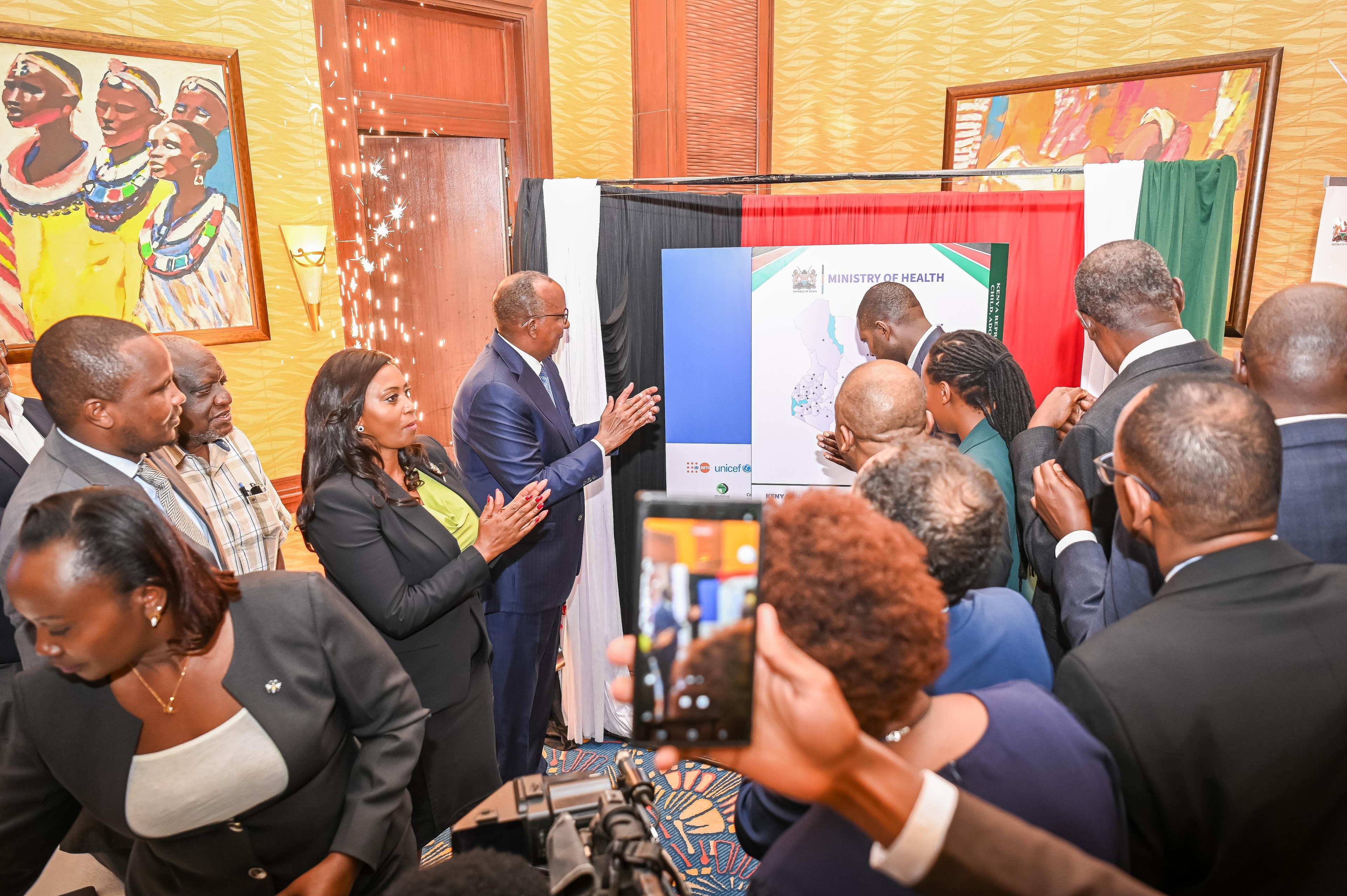
 Health CS Aden
Duale/HANDOUT
Health CS Aden
Duale/HANDOUT
Hundreds of millions of shillings were at risk of being lost to fraudulent claims made by unscrupulous health facilities targeting the Social Health Authority, Health CS Aden Duale has revealed.
Duale said investigations had uncovered irregular payments, with the exact amount to be determined after an ongoing validation exercise.
“Preliminary estimates of financial exposure related to these irregular payments are in the range of several hundred million shillings,” he told the Senate plenary on Wednesday.
“A final verified figure will be communicated once the joint audit and reconciliation process is concluded.”
SHA’s digital audit system successfully flagged and rejected non-compliant or fraudulent claims worth Sh10.6 billion, the CS explained, saving taxpayers from potential losses.
He credited the detection to new safeguards embedded within the system’s digital architecture, which he described as critical in exposing and preventing fraud.
“This ongoing forensic validation is proof of the effectiveness of SHA's new digital system in uncovering and preventing fraud,” Duale said, adding that fraud remains the single biggest threat to the success of SHA.
He warned that the government would not hesitate to close culpable health facilities and prosecute individuals implicated in the scam.
“Very soon—later this week or next week—you will see people being taken to court,” Duale told senators.
To strengthen governance, transparency and accountability, Duale said SHA had rolled out robust reforms, including the deployment of next-generation Artificial Intelligence and machine learning tools within its Claims Adjudication Platform.
The upgraded system, he explained, detects abnormal claim patterns, inflated billing and duplicate submissions in real time using automated pattern recognition.
Each claim is linked to biometrically verified beneficiaries to ensure that only legitimate patients and providers are reimbursed.
“SHA has initiated a structured recovery and accountability plan, including the immediate suspension of facilities found complicit in fraudulent activity and re-examination of all suspect claims,” he said.
Duale added that the Ministry of Health is working with the DCI, the EACC and the Office of the Auditor General to pursue prosecution and asset recovery where applicable.
He noted that SHA operates under a fully constituted board with oversight responsibility for financial management, audit and risk functions.
The Audit and Risk Committee monitors and assesses the fund’s financial integrity.
“All procurement processes within SHA strictly adhere to the Public Procurement and Asset Disposal Act, 2015. An e-procurement system is being implemented to enhance transparency, ensure competitive bidding, and minimise human discretion in tender evaluations,” Duale said.
Kisumu Senator Tom Ojienda had sought clarification on measures the government has taken to strengthen financial oversight over SHA and its associated funds, particularly in procurement processes, internal controls and overall financial management.
In response, Duale said, “SHA has deployed an integrated financial management system that links budgeting, accounting, and reporting functions, ensuring real-time tracking of fund flows and promoting operational efficiency.”
Nominated Senator Tabitha Mutinda also inquired about the status of the Linda Mama Maternal and Child Healthcare Programme.
Duale explained that the ministry had adopted a comprehensive household coverage model to ensure that vulnerable families access a broader range of essential health services.
He disclosed that the national government is sponsoring 558,000 indigent households—identified through the State Department for Social Protection’s Enhanced Single Registry—to access healthcare under SHA.
Recognising teenage pregnancy as a major public health challenge, Duale said SHA has introduced targeted interventions for adolescent mothers and their newborns.
“To date, over 22,000 teenage mothers across the country have accessed maternal services free of charge,” he said.
“The allocation of funds now operates on a Fee-for-Service model where funds follow the patient via claims, replacing fixed pre-allocations.”
Mutinda further asked whether the benefit package of Linda Mama had changed following its transition under the Social Health Insurance Fund.
Duale explained that the transition has significantly expanded the former Linda Mama programme from a narrow maternal focus to a comprehensive household coverage model now known as Linda Jamii.
“While delivery services remain central, reimbursement has improved through a Fee-for-Service model aligned with actual service costs, strengthening inclusivity for vulnerable households,” he said.













